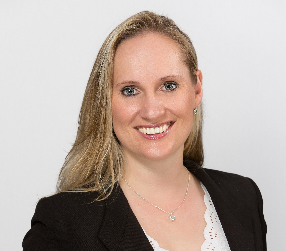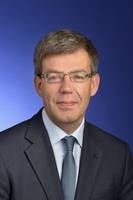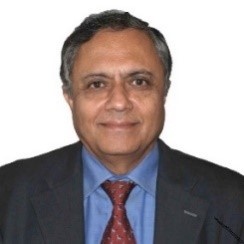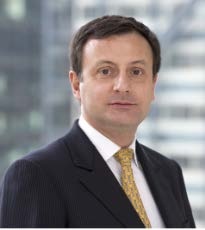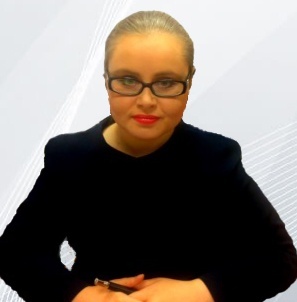| Position | Name |
|---|---|
| Project leader | |
| Editor |
Team Members - Impact Assessment Tool | ||||||||||||||||||||||||||||||||||||||||||||||||||||||||||||||||||||||||||||||||||
|---|---|---|---|---|---|---|---|---|---|---|---|---|---|---|---|---|---|---|---|---|---|---|---|---|---|---|---|---|---|---|---|---|---|---|---|---|---|---|---|---|---|---|---|---|---|---|---|---|---|---|---|---|---|---|---|---|---|---|---|---|---|---|---|---|---|---|---|---|---|---|---|---|---|---|---|---|---|---|---|---|---|---|
(Canada) Project team leader Managing Director & Director Sustainable Projects, Institute for Sustainable Infrastructure (ISI). She has 20 years' professional experience, most of which have focused on developing, implementing, and administering sustainability and resiliency standards, frameworks, and rating systems for infrastructure, commercial real estate, and industrial products. Since joining ISI in 2016, Melissa has verified the sustainability and resiliency of more than 70 infrastructure projects across the US, Canada, and overseas, collectively worth more than US$25 billion with another US$25 billion in infrastructure development under her purview. Prior to ISI, Melissa was an associate of sustainable development at Stantec, a global engineering, consulting and design services firm and was the national sustainability program manager for BOMA Canada, a prominent commercial real estate association. Melissa has a Bachelor of Commerce degree, a Master of Environmental Studies degree and a Graduate Diploma in Business and Sustainability. | ||||||||||||||||||||||||||||||||||||||||||||||||||||||||||||||||||||||||||||||||||
(Spain) Project team leader Carl Schrøder Professor of Strategic Management, IESE Business School. He has been Chairman of the Strategic Management Department at the IESE Business School for 23 years. He is a Fellow of the SMS and EURAM and he was the Founding president of the European Academy of Management (EURAM) and President of the Strategic Management Society (SMS). He has published several books and articles in leading journals as Strategic Management Journal, Harvard Business Review, Journal of International Business Studies, Econometrica or Quarterly Journal of Economics. His current research focused on business models and Cities. He is co-academic director of IESE Cities in Motion and academic director of the Specialist Centre of Excellence on PPPs in Smart and Sustainable Cities. | ||||||||||||||||||||||||||||||||||||||||||||||||||||||||||||||||||||||||||||||||||
(United Kingdom) Project team leader Joined KPMG in May 2011 as chairman of KPMG’s Global Infrastructure practice. In his role he has visited over 40 countries to discuss their infrastructure investment programmes. Prior to joining KPMG, James was Chief Executive of Infrastructure UK and before that Chief Executive of Partnerships UK. In these roles James has been at the centre of the UK Government’s thinking on PFI and PPPs and has had a significant involvement in many of the major projects and programmes in the infrastructure market; eg Crossrail, LIFT, Building Schools for the Future. James was responsible for the publication of the UK’s first National Infrastructure Plan. He is a Fellow of the Institute of Civil Engineers and a member of the World Economic Forum Infrastructure Global Agenda Council. | ||||||||||||||||||||||||||||||||||||||||||||||||||||||||||||||||||||||||||||||||||
| Sub-group: Access and equity | ||||||||||||||||||||||||||||||||||||||||||||||||||||||||||||||||||||||||||||||||||
Doris CHEVALIER (France) (Sub-group leader) | Civil engineer from the Ecole des Ponts et Chaussées de France and a recognized expert from his peers in project financing and in particular PPP. After having worked for more than 25 years for large private groups (Vinci, Bouygues, Alstom), public entities (Autoroute du sud de France, Ministère des Finances - Unit PPP) and in investment funds, mainly in main funding roles for infrastructure, she created her company INFRABOOST in 2015 to serve as structural finance consultancy in project finance. She has participated in more than 20 billion euros in projects worldwide and has been in charge of implementing State Guarantee projects for infrastructure in response to the 2008 financial crisis. She is a pioneer in Impact Finance. Doris Chevalier has supported the work of the PPP UNECE team since 2014 and is also an expert for the European Commission (INEA & H2020 PME program), member of the DRBF (Dispute Board Resolution Foundation) and administrator of Paris International Airport. | |||||||||||||||||||||||||||||||||||||||||||||||||||||||||||||||||||||||||||||||||
| ||||||||||||||||||||||||||||||||||||||||||||||||||||||||||||||||||||||||||||||||||
| Sub-group: Environmental sustainability and resilience | ||||||||||||||||||||||||||||||||||||||||||||||||||||||||||||||||||||||||||||||||||
Anand CHIPLUNKAR (India) (Sub-group leader) | Dr. Anand Chiplunkar has a unique expertise of more than four decades working in Central and West Asia, South and Southeast Asian countries as well as in the USA. He has expertise in Integrated Urban Development, Water Supply and Sanitation, Environmental Management and Infrastructure Development through a Public Private Partnership (PPP) approach. He retired in 2016 after working for a decade in the Asian Development Bank, Manila as Director, Urban Development and Water Division in the Central and West Asia Department. Earlier he worked in IL&FS Infrastructure Development Corporation, New Delhi as Senior Vice President. Since 2016, he provides strategic advisory services to different organizations including the UN Economic Commission for Europe in People’s First Public Private Partnerships. His experience covers country sector policy development in the context of Sustainable Development Goals (SDGs); strategic planning, project development and implementation of municipal projects; development of innovative approaches; knowledge management including publications. He has guided initiatives in the Asian Development Bank (ADB) that focused on Inclusive, Competitive and Green Cities development with climate change and resilience perspectives for projects in water, wastewater and solid waste management, urban transport and other urban sub-sectors. He is an expert in Water Supply and Sanitation having worked on projects aided by multi-lateral agencies. He has also led teams in developing PPP projects in partnership with government agencies in urban, transport, industrial area development and tourism sectors. Earlier, he also has conducted numerous Environmental Impact Assessment (EIA) studies for infrastructure sectors and industries. | |||||||||||||||||||||||||||||||||||||||||||||||||||||||||||||||||||||||||||||||||
| ||||||||||||||||||||||||||||||||||||||||||||||||||||||||||||||||||||||||||||||||||
| Sub-group: Economic effectiveness, including fiscal sustainability | ||||||||||||||||||||||||||||||||||||||||||||||||||||||||||||||||||||||||||||||||||
Jean-Patrick MARQUET (France) (Sub-group leader) | A French national based in Geneva, Switzerland, is a senior executive in development finance, currently a member of the World Economic Forum’s Global Future Council on Infrastructure, an executive think-tank seeking to chart a path for sustainable infrastructure investment. He is also acting as a subgroup leader on behalf of the United Nations Economic Commission for Europe to design an evaluation methodology for infrastructure projects, measuring their contribution to the UN Sustainable Development Goals 2030. Until 2018, Jean-Patrick was a Managing Director at the European Bank for Reconstruction and Development (EBRD), running successively the Turkey offices (2015-2017, €7 billion portfolio, 90 staff) and the Infrastructure business group (2017-2018, €12 billion portfolio, 110 staff). His earlier career at EBRD and Credit Agricole CIB in London and Paris focused on project finance in infrastructure, oil & gas, energy, mining and property. Jean-Patrick holds a Master in Management from HEC Paris and a Master of Law from the Assas law school at Paris-II University. | |||||||||||||||||||||||||||||||||||||||||||||||||||||||||||||||||||||||||||||||||
| ||||||||||||||||||||||||||||||||||||||||||||||||||||||||||||||||||||||||||||||||||
| Sub-group: Replicability | ||||||||||||||||||||||||||||||||||||||||||||||||||||||||||||||||||||||||||||||||||
Tetiana BESSARAB (Ukraine) (Sub-group leader) | - 17 years of professional legal practice in Ukraine, CIS and CEE; admitted to Ukrainian Bar since 2007 (attorney at law at Kyiv Bar Association) - Cross border consultant and international lawyer in the region of CIS, Central and Eastern Europe - Member of the ICC Ukraine Committee on PPPs; Member of UNECE PPP Business Advisory Board, expert at UNECE Working Party on Public-Private Partnerships - Areas of expertise include project financing, PPP, real estate and construction, banking and finance, project finance, infrastructure and development, cross-border investments | |||||||||||||||||||||||||||||||||||||||||||||||||||||||||||||||||||||||||||||||||
| ||||||||||||||||||||||||||||||||||||||||||||||||||||||||||||||||||||||||||||||||||
| Sub-group: Stakeholder engagement | ||||||||||||||||||||||||||||||||||||||||||||||||||||||||||||||||||||||||||||||||||
Amanda LOEFFEN (United Kingdom) (Sub-group leader) | Chief Executive of ‘Human Right 2 Water’, with a goal to provide sustainable solutions based on human rights to improve water governance worldwide. She is an experienced general manager and business development executive in water, energy and sustainable development, with international experience in Australasia, Europe and North America. She acts as subgroup leader on behalf of the United Nations Economic Commission for Europe to design an evaluation methodology for infrastructure projects, measuring their contribution to the UN Sustainable Development Goals 2030. Director General of WaterLex until 2019, she led a team of water governance experts to encourage law and policy reform. Previously, leading a project management company in New Zealand, Amanda delivered environmental resource consent for a large community water infrastructure scheme for irrigation and hydro-generation. This involved an extensive community and multi-stakeholder engagement programme to adapt the project to meet all stakeholder demands for environmental, social, cultural, and economic impacts. | |||||||||||||||||||||||||||||||||||||||||||||||||||||||||||||||||||||||||||||||||
| ||||||||||||||||||||||||||||||||||||||||||||||||||||||||||||||||||||||||||||||||||
